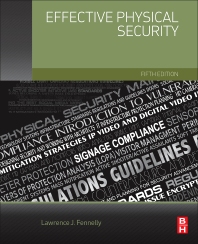The Physical Security Interoperability Alliance (PSIA) reported that it has achieved important new milestones within its Physical Logical Access Interoperability (PLAI) specification less than a year after forming a Working Group to develop it.
PLAI is being designed to enable employee identities and roles defined or revoked in an authoritative logical identity system to automatically propagate to one or more PLAI-compliant physical access control systems (PACS). PLAI synchronizes physical and logical identity management and access control and standardizes functions that typically have required custom programming to achieve. PLAI now can accomplish the following:
- compatibility with PACS from multiple vendors;
- enables initial registration of an employee from an authoritative source (IT or HR logical directory) to the PACS;
- establishes role-based privileges at the authoritative source and propagates this logical privilege data throughout multiple PACS;
- propagates the credential information (both in the form of cards or upcoming mobile credentials) of an employee from one PACS to others, thus supporting enhanced access control at multiple facilities; and
- easily invokes and revokes physical access privileges in multiple PACS.
PLAI asserts roles defined by an authoritative source (HR or IT) so these roles do not need to be redefined in the PACS. The use of a single authoritative source by multiple PLAI-enabled PACS ensures the validity and synchronization of an employee’s physical and logical identity data.
“The PLAI Working Group has achieved a great deal of important functionality that adds tremendous value to access control systems,” said Mohammad Soleimani, chairman of the PSIA, head of the PLAI Working Group and CTO and executive vice president at Kastle Systems.
“By being PLAI-compliant, access control vendors can offer security end users a streamlined, standard means of synchronizing physical and logical identities and their access privileges. The PSIA is pleased to offer the industry a cost-effective, intelligent solution to a perennial challenge.”
“Mohammad has been instrumental in taking this from concept to an active working group in a very short time. The PLAI initiative was demonstrated as a proof-of-concept at ISC West earlier this year and now has a very dynamic group of physical security leaders developing implementations that could be rolled out commercially in the near future,” said David Bunzel, executive director, the PSIA. “That’s a testament to our members and their dedication and the PSIA’s focus on solving significant industry issues.”
The PLAI Working Group member companies are Allegion, Honeywell, Inovonics, Kastle Systems, Mercury Systems, Microsoft Global Security, Stanley Security and UTC/Lenel.






